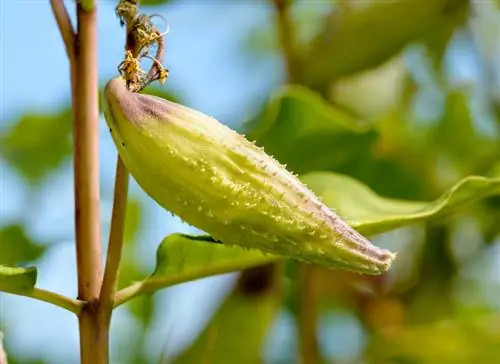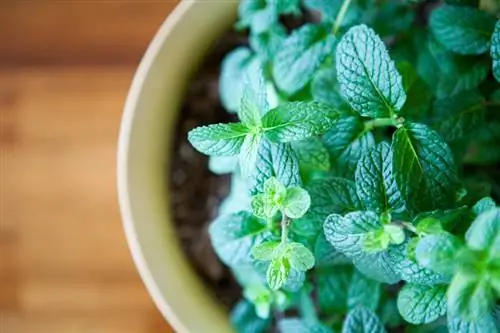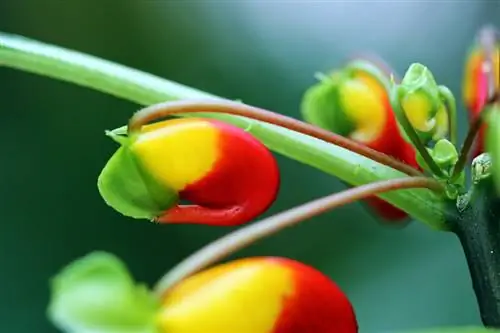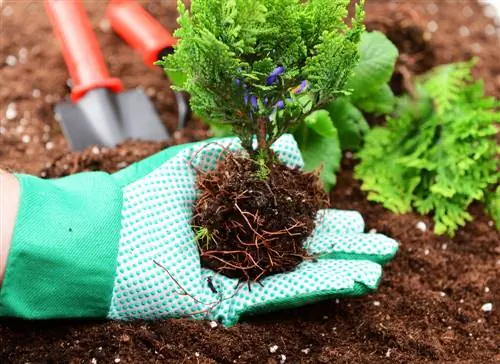- Author admin [email protected].
- Public 2023-12-16 16:46.
- Last modified 2025-01-23 11:20.
Huge, exotic-looking leaves, upright stems, orange-red flowers and, in autumn, emerald-green fruit clusters reminiscent of budgies - the parrot plant is visually impressive. But be careful: it should be enjoyed with caution!
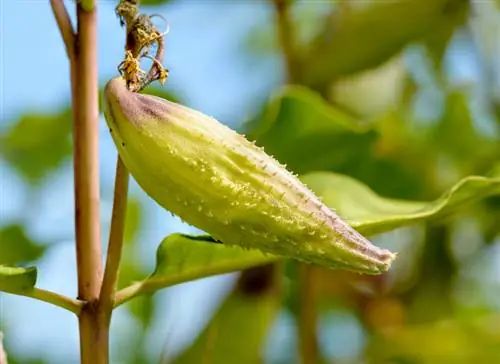
Is the parrot plant poisonous?
The parrot plant, also known as milkweed, is mildly poisonous. Both their plant parts and the milky sap in leaves and stems contain toxins. Nevertheless, it is used in medicine and industry and is valuable for bees.
Slightly toxic but still of medicinal value
The parrot plant, also known as milkweed and easy to propagate, is considered mildly poisonous. Both its plant parts and its milky sap, which is contained in the leaves and stems, are poisonous.
Nevertheless, this plant is significant and worth planting:
- Production of cough syrups (has an expectorant effect)
- Milk juice is used to produce rubber and caoutchouc
- Flowers are valuable pasture for bees
- decorative seed heads
- ‘Silk’ in the fruits for filling pillows
Tip
If you have pets or small animals in the household, you should place the plant out of their reach and take care when caring for it that no parts of the plant fall to the ground!

